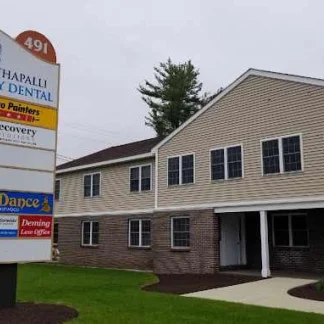Nashua Children's Home - 125 Amherst Street
Nashua Children’s Home – 125 Amherst Street is a private rehab located in Nashua...
GH Recovery Solutions is a private rehab located in Nashua, New Hampshire. GH Recovery Solutions specializes in the treatment of Substance Abuse.
Contact us for more information: (855) 448-3588

Connect with GH Recovery Solutions by calling their admissions team directly.
(855) 448-3588 Website Get DirectionsResearch clearly demonstrates that recovery is far more successful and sustainable when loved ones like family members participate in rehab and substance abuse treatment. Genetic factors may be at play when it comes to drug and alcohol addiction, as well as mental health issues. Family dynamics often play a critical role in addiction triggers, and if properly educated, family members can be a strong source of support when it comes to rehabilitation.
Group therapy is any therapeutic work that happens in a group (not one-on-one). There are a number of different group therapy modalities, including support groups, experiential therapy, psycho-education, and more. Group therapy involves treatment as well as processing interaction between group members.
In individual therapy, a patient meets one-on-one with a trained psychologist or counselor. Therapy is a pivotal part of effective substance abuse treatment, as it often covers root causes of addiction, including challenges faced by the patient in their social, family, and work/school life.
Group therapy is any therapeutic work that happens in a group (not one-on-one). There are a number of different group therapy modalities, including support groups, experiential therapy, psycho-education, and more. Group therapy involves treatment as well as processing interaction between group members.
In individual therapy, a patient meets one-on-one with a trained psychologist or counselor. Therapy is a pivotal part of effective substance abuse treatment, as it often covers root causes of addiction, including challenges faced by the patient in their social, family, and work/school life.
In individual therapy, a patient meets one-on-one with a trained psychologist or counselor. Therapy is a pivotal part of effective substance abuse treatment, as it often covers root causes of addiction, including challenges faced by the patient in their social, family, and work/school life.
Nashua Children’s Home – 125 Amherst Street is a private rehab located in Nashua...
Harbor Care is a mental health support and drug and alcohol addiction recovery b...
Merrimack River Medical Services offers outpatient treatment for individuals dea...
Greater Nashua Mental Health Care (GNMHC)–Community Council offers mental and be...